The Cross is the Throne
The religious and political leaders around Jesus were right that his kingdom threatened theirs, because he was at every turn exposing the evil and destructive practices of those that thought their life was best when they pursued their desires at the expense of others.
When they bring Jesus to their Roman ruler to do their dirty work, he tries to shield Jesus by giving them a choice to release Barabbas, whose name means “son of the father,” or Jesus, the man claiming to be the true Son of God.
After all they had seen him do, after all they had heard Jesus teach, in the end worldly leaders choose Barabbas—the violent, failed insurrectionist. To them, his way is the way that makes sense.
So Jesus, the one who healed, redeemed, liberated, and gave life, is condemned to death on the Cross. And because Jesus is committed to the Kingdom of life and peace and will not move forward with violence, he is met with violence, and that Cross becomes the Throne of heavenly grace, where he loves and forgives, offering grace upon grace even to those that crucified him.
That love was the power that swallowed death in death, and it was the Spirit of Love that raised Jesus from the dead, never to die again, vindicating his kingdom of life and peace as the only eternally victorious kingdom.
John’s apocalyptic vision proclaims:
Jesus “…has freed us from our sins by his blood and made us a kingdom, priests to his God and Father…” (Rev. 1:6 ESV).
Our objections to the way of Jesus, our blindness to the futility of violence, our inability to realize a better kingdom than the kingdoms we were born in–it’s all been dealt with on the Cross.
The church has been made—by grace alone—the place where the Christ’s Kingdom of self-giving love is revealed first to the kingdoms of this world.
As priests in this world, we are witnesses together, just like Christ, to the Truth of who God is in Christ, and what his eternal Kingdom is really like.
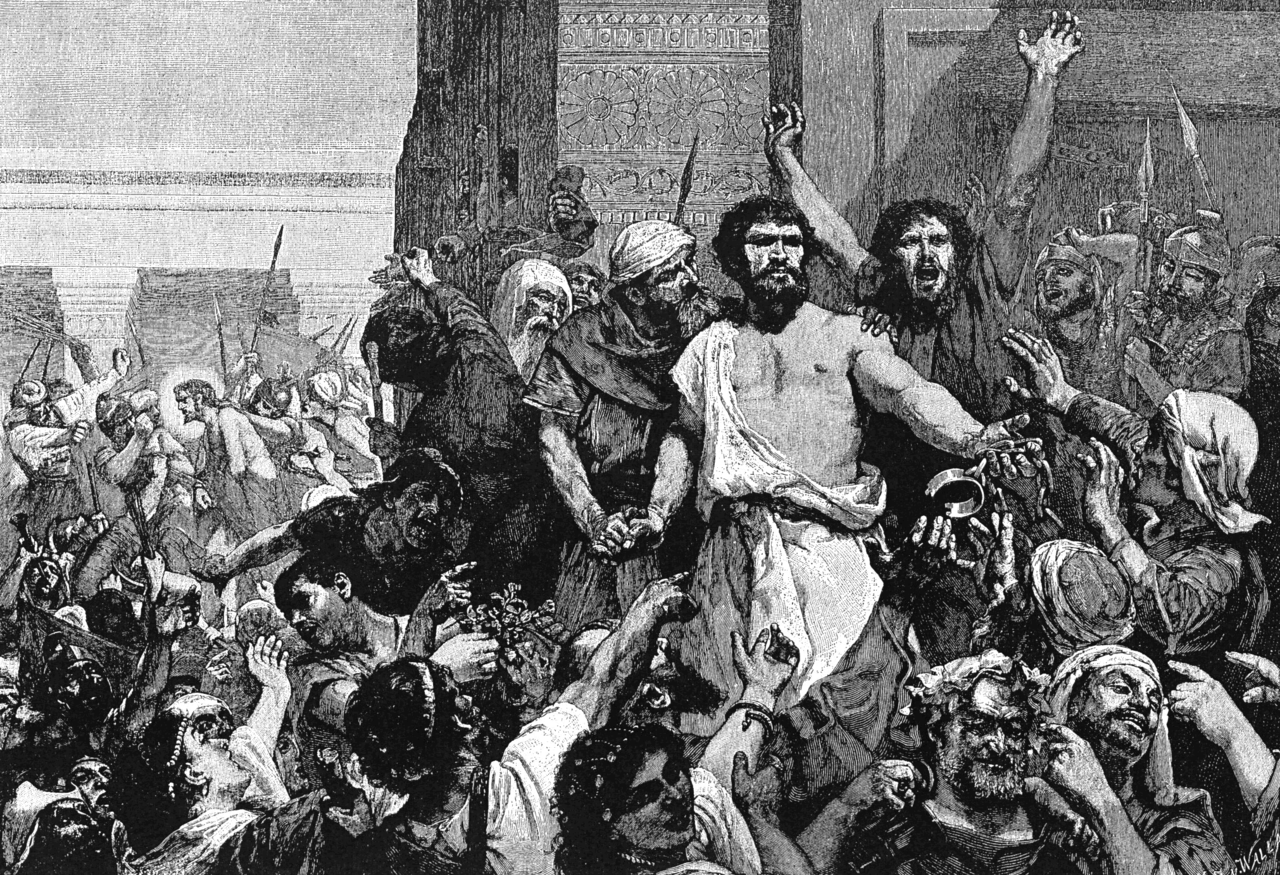
The Kingdom of Christ is fundamentally spiritual, but not merely spiritual
What makes a good king different from a bad king is the kind of power used and the way that power is used.
The thing that destines every king to fail is the unavoidable—and for every worldly king at some point irresistible—temptation to use their power to benefit themselves at the expense of others.
Devotional writer Jane Williams says,
“…what Jesus is offering as a description of his own kingship is truth—reality, you might say. Revelation calls it ‘the Alpha and Omega, who was and is and is to come’. If the actual reality of the world, from its creation to its end, is like Jesus, then this strange human obsession with power is an aberration. It has no ability to create, to redeem or to sanctify. Jesus’s challenge to Pilate’s kind of power is too slow and subtle for many of us, who long to use the weapons of worldly power to force victory for God. But if Jesus is the truth, then any other way is falsehood, and will fail. Reality, as it was and is and is to come, is shaped by a different kingship.”
Jesus lives as King over a kingdom that is certainly powerful, but he draws on a power not from this fallen world.
Jesus rules and reigns and fights battles in this world through the power of self-giving love and truth, which can only come from God himself.
His Kingdom is fundamentally spiritual in that it is conceived, birthed, and animated by the Spirit of Love who is God the Holy Spirit, but it is not merely spiritual because this Spirit takes up residence in his subjects, his followers, for the sake of the world.
7 encouragements for the deconstructing
“Deconstruction” is the topic du jour in the Christian social media space right now. It’s the recognition that many former “evangelicals” America–especially younger ones, and in large numbers–are rapidly rejecting parts of their evangelical faith and culture.
As someone who has had my own unique deconstruction journey (and in many ways continue that journey to this day) I want to say to those currently in the process:
-
I see you, and you are not alone, as disorienting, scary, painful, and disturbing as the process can be
-
I know you are probably in this for good reasons. We all have certain beliefs and values that need to be deconstructed and some that need to be outright rejected
-
To the extent you are deconstructing beliefs and values that do not align with the Jesus presented in the Gospel and witnessed to by the church catholic, you are on the right track
-
There is room within the Christian family for those who doubt, question, and explore
-
You are loved by Jesus. He is secure enough to welcome your questions, and close enough bear your uncertainty, and kind enough meet you where you are in this moment
-
No matter how much you feel like you are falling apart, there is hope and a path for “reconstruction” and most of all Resurrection because (see #5)
-
I’ll say it again, you are not alone.
Pretty excited to release a collection of songs, p r o d i g a l, today.
Hit the link or stream below.
Every opportunity to love
So thankful today that Jesus did what I could never do:
Every temptation, he resisted. Every sin, he rebuked. Every affront, he forgave. Every blow, he absorbed.
Every opportunity to love, he loved.
In this he condemned sin in the flesh, dragging it to death as he himself died.
But sin, having been denied in him, could not destroy him, even by death of the body.
The Divine Life in him consumed even physical death, so he was raised, Resurrected, his body healed, purfied, perfected–Spirit-soaked, through and through– by the Lord, the Giver of Life.
So every mercy, he pours out. every grace, he gives.
Every one, he saves.
A present friend
Watched the Disney version of The Lion, the Witch, and the Wardrobe last night with the kids. Haven’t seen it since it released in theaters. Haven’t read the book since just before that.
It’s far from perfect and the vfx are dated, but I still found it moving.
There’s no doubt for me–after this latest revisit to Narnia–that Lewis set the stage for me to be an Anglican, to recieve a patristic understanding of the atonement, to find echoes of Christ in all the great myths, to understand the Gospel as world-changing and beautiful and mysterious and tangible.
I think what was so moving for me this time around was a sense of gratitude for this childhood mentor that I never met and died before I was born, and still yet seems be a present friend.

I encourage our church to wrestle with the teaching of Jesus in the Bible.
Here’s how I define “wrestle”:
To acknowledge openly the difficulty and pain of what is being said as we feel challenged, and asking honest questions of Jesus, while nevertheless clinging to him in faith that his teaching is always true, and always for our good.
“Over and over again the formation of a party, the growth of a clique, the promotion of a split have been justified as standing for the truth. It is said that, unless we divide, the truth cannot be safeguarded; the body from which we are dividing has rejected all truth, or this truth or that.
But when Paul withstood Peter to the face over the really cardinal issue of the truth of the gospel (Gal. 2:14), he did not separate, form a party, send word to the churches he had founded that they were now a new denomination.
The sad thing is that we who are born into a divided, wretchedly denominational situation are inured from birth to separation, and we have lost James’ realization that in Christian division, as in time of war, truth is the first casualty.”
J. A. Motyer, The Message of James: The Tests of Faith, The Bible Speaks Today, (Leicester, England; Downers Grove, IL: Inter-Varsity Press, 1985), 133.
Just look at him
A real problem with so much hand wringing over the future of the Church is that there’s so little re-centering of hope on the person and work of Jesus.
The hope for the continued vitality of the church too often seems to be in getting our doctrinal ducks in row in either a conservative or liberal direction…
The problem with that is getting our doctrinal ducks in a row IS NEVER enough.
I’m not saying doctrine isn’t important, it’s just…
It’s not even the right starting point!
…
Start again with Jesus.
Point people to Jesus.
Meditate on your experience of Jesus.
Listen to catholic witness regarding Jesus.
Lift up Jesus.
Deconstruct what is not Christlike.
Reform…
…but not according to “progress,” or to the “early Church,” or a romanticized Protestant ideal, to Christ and Christ alone.
There is unending hope for the future in this process, because while theological systems come and go, and even Communions fall apart…
It is Christ himself that draws all people to himself.
…
Is this messy? Yes.
Does it require faith that Christ will indeed truly build his church, even using our weakness?
It absolutely does.
…
You may wonder which Jesus? Mormon Jesus, Muslim Jesus, Protestant Jesus, Roman Catholic Jesus? Jesus the meek and mild of the Anabaptists or the Gun ‘n’ God Jesus of the Christian Nationalists?
I say, the one that defeated death with forgivess,
the one that (amazingly!) we have good reason to believe is actually alive and reigning at the right hand of God,
the one then that can and will DO SOMETHING in the present,
the one that is most consistently attested to throughout the ages in the 4 canonical Gospels, and the worshipping life of the church in all places and and times,
the one the holy martyrs placed their faith in,
the one that restored divine glory to humanity and demonstrated fully the humanity of the divine,
the one that convicts but never condemns,
the one who loved, is loving, and will always love without reservation,
And if you wonder what this Jesus thinks love is,
Just look at him on the Cross.
There is my only enduring hope for any church, for any person, and for myself.
The liberating Way of Christ
We pray fervently for God to come through for the oppressed in the present, through those of us that have been given his Name, through the taking up of our own cross…because the Way of Christ is only and always the Way of the Cross.
The cross of speaking prophetically and truthfully, and being maligned for it.
The cross of teaching plainly the implications of the Gospel for our time and place, and being torn apart for it.
The cross of on-the-ground pastoral care, and its few-and-far-between moments of visible results.
The cross of peacemaking, when many are for war.
The cross of being actually arrested, beaten, and assassinated for declaring the dignity of those the world would use, abuse, and forget.
The cross of knowing our place in this world as “little Christs” is in fact, on a cross.
The confidence we have in doing this–instead of driving spikes through the hands, feet, heads, and sides of our enemies–can only come from the release of the fear of death in present, itself a sure result of looking with faith upon crucifixion and Resurrection of our Lord.
Some Good News is that the promise of this Way isn’t only life after death, but life in the present after our death in the present.
In other words, this way of living and dying for the sake of others–instead of responding with violence–plants seeds of life.
We see it in the hope of the Thief that throws himself at Jesus' mercy.
We see it in the incredulity of the Roman Soldier that couldn’t help but find God revealed in God bleeding out.
We see it in the Faithful Women that never looked away from the glory of the Cross and so caught the first outpouring the joy of the New Creation, to which they bear eternal witness in the Kingdom.
We see it in self-centered, broken Peter as he is restored, even as he acknowledges his own lack of internal resources to live up to the love of Christ.
As we allow ourselves to be mystically joined to Christ and his Cross, the Love poured out there pours into us and upon those that are killing us and others in a thousand cruel ways.
Our faith is that this Love upholds prophets and practicioners of mercy and justice, satisfies thieves, chastens muderers, comforts mourners, brings traitors home, and even raises the dead to life, because that Love is the Spirit renewing the redeemed cosmos.
And where the Spirit is, there is liberation.
Photo: unsplash.com/photos/F5…
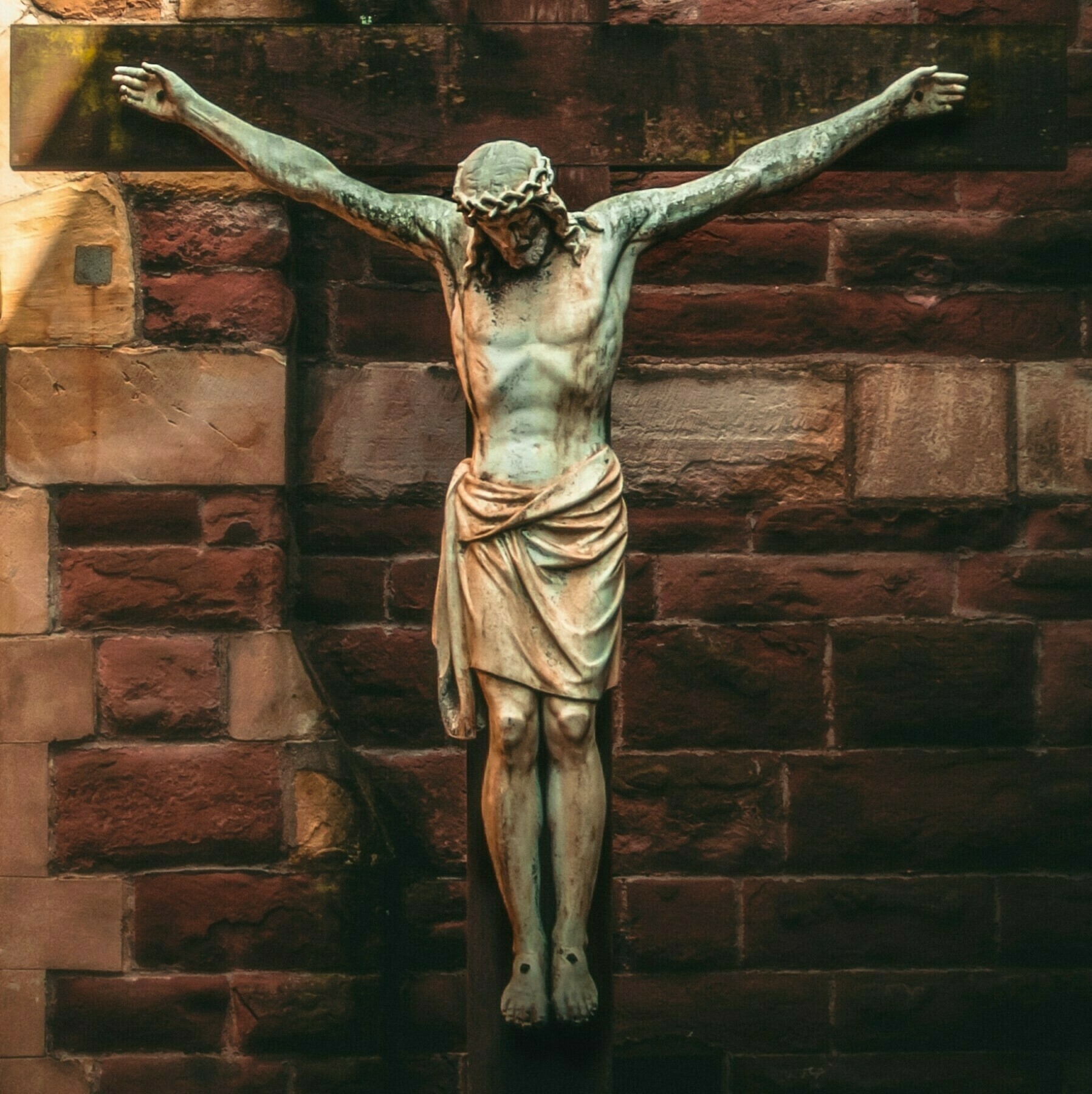
We can have courage to confess our sins, because God in Christ in Christ gives us assurance of forgiveness.
I WAS BORN IN 1 9 8 4
a musical sketch
Having so much fun with virtual synths/midi these days
best w/headphones
Today we commemorate St.. James, who demontrates that leadership and authority in the church have much more to do with the Spirit of self-giving than getting things done.
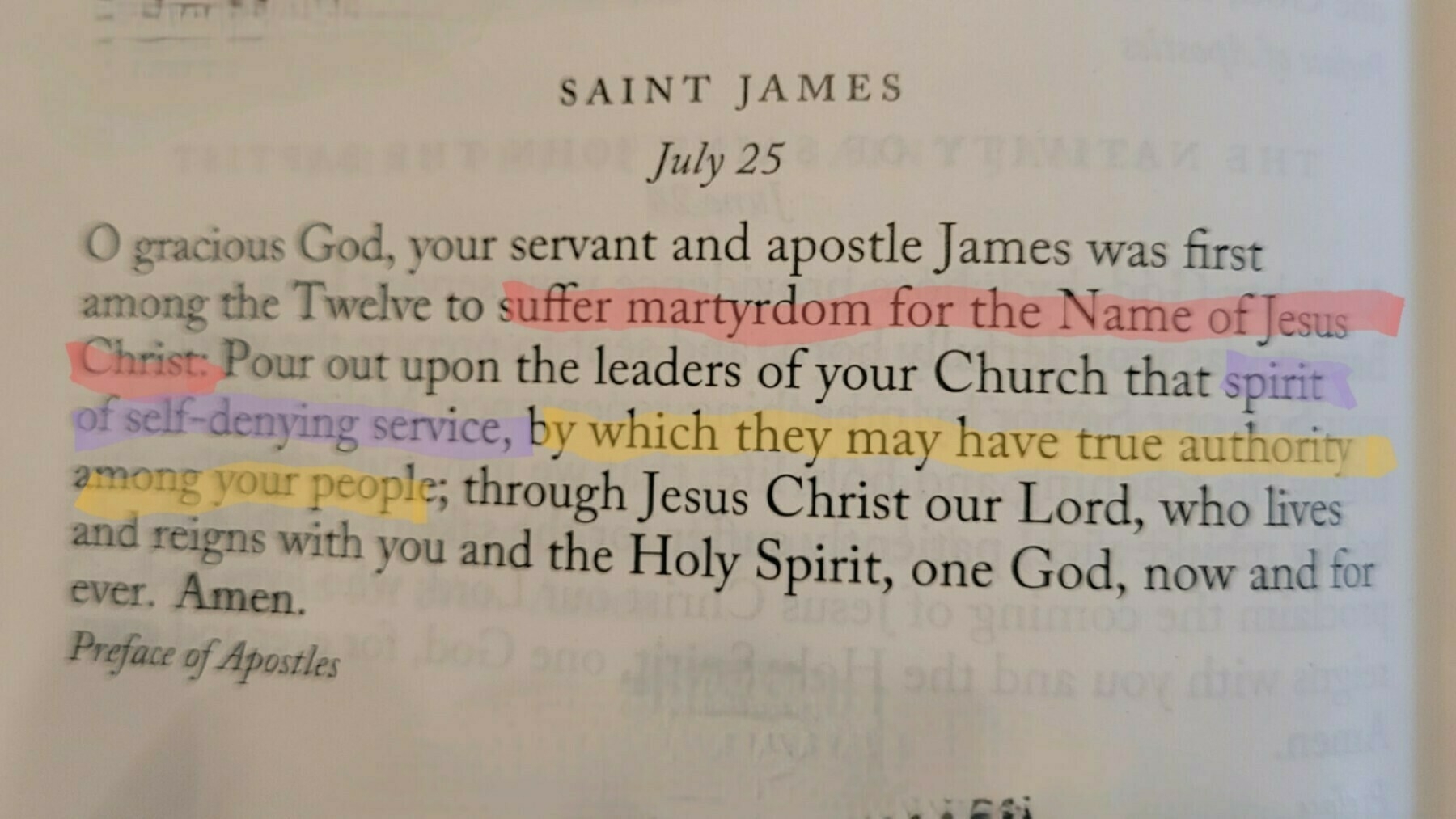
📚 Some gems found today at Costco, of all places: a great Sherlock Holmes box set, a really helpful collection of key American writings and political speeches, and a fascinating compilation of Eastern philosophy, all in fantastic looking bindings and covers.Great stuff to have on hand for the whole fam!
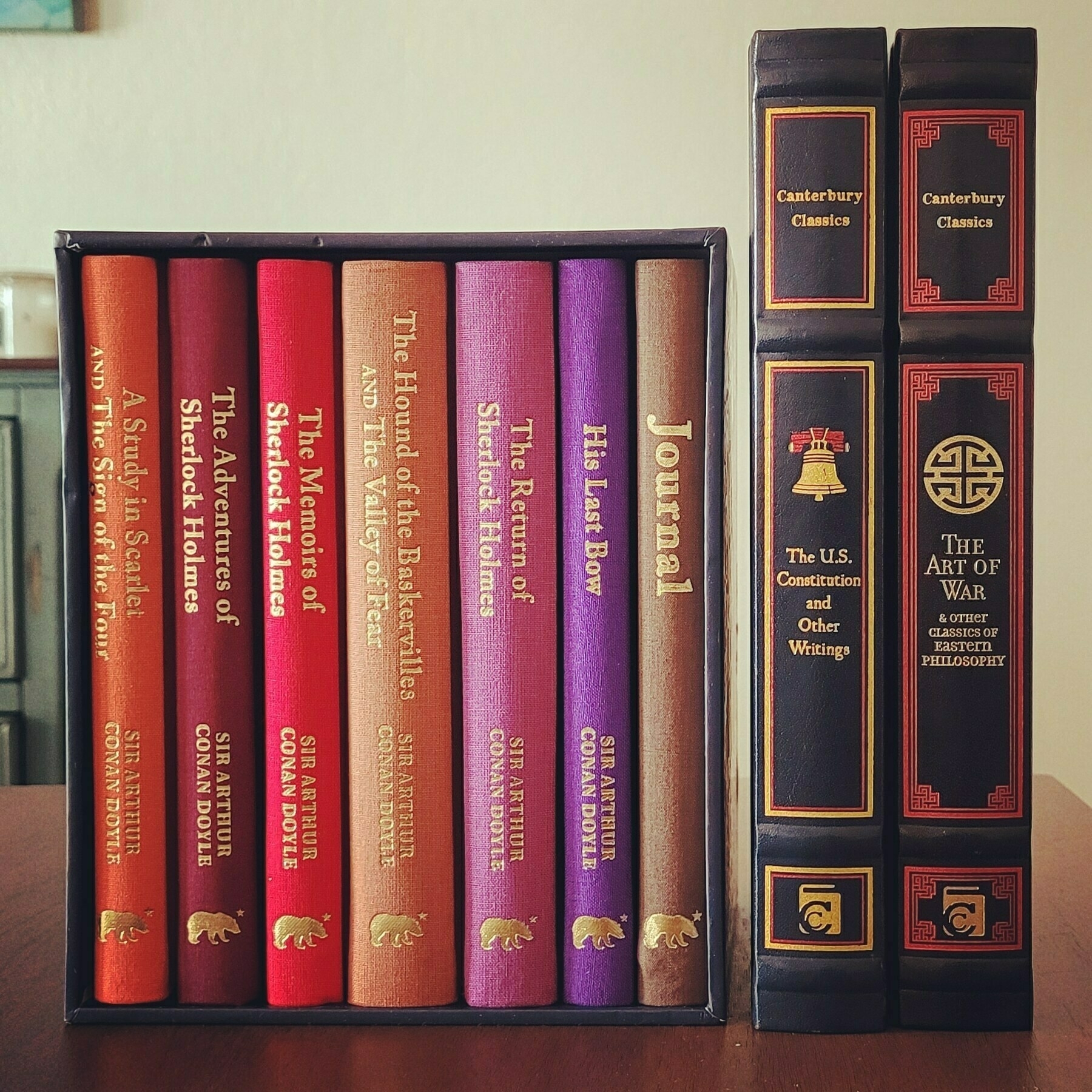
Christianity is comforting, not comfortable
Church is a community where all the distraught can be comforted with the sure hope of the Gospel.
Nevertheless the comforting and confident path we walk is inevitably uncomfortable as we experience real suffering for the sake of Christ.
Live the life of the church, in other words, to be comforted, but don’t expect to be made comfortable.
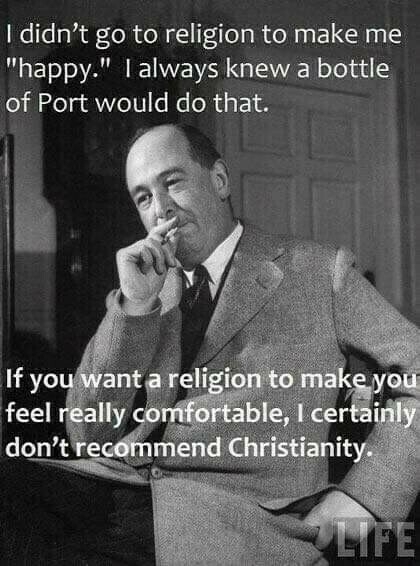
Nationalism, Christianity, encouragement -- and regret
It’s encouraging to see there are gestures in America toward a renewed humility in the so-called “prophetic” movement.
This idolotrous, nationalist strain of the charismatic world is essentially the same thing as what we see corrupting evangelicalism.
Both claim divine revelation in their effort to legitimize a “power-and-profit by whatever means necessary” mentality.
For charismatics, it’s a supposedly direct “word” asserted with unjustified confidence and unfounded authority; for evangelicals it’s a conveniently malleable set of “biblical principles.”
Both are false teachings with soul-poisoning consequences, because both are divorced from Jesus as the Supreme Revelation of God in the Gospels.
Both demand a very different kind of life than our Lord taught us to live, namely a life enslaved to fear instead of liberated, quiet confidence.
One of my profound regrets as a pastor and just as a Christian brother is not clearly and boldly doing constant ground work to address these destructive trends much earlier in the communities I am a part of.
I knew they were problems “out there”; I simply (and naively) didn’t imagine they would take root (or had already become embedded) among people I know and love.
I pray for grace and wisdom, true prophetic insight and evangelical zeal to follow the Spirit of the Lord and witness faithfully to the fullness of God in Christ, given for the world.
Behold the heart of God in Christ
If Jesus gives us the Spirit of the Law in the Sermon on the Mount, then the Spirit of the Law is revealed as non-violent.
If the Spirit of the Law is non-violent, the heart of God is non-violent.
If the heart of God is non-violent, this changes everything for me:
- my involvement in national politics,
- my perspective on church governance,
- how I join parishioners in praying for our loved ones who are in enlisted,
- what I think about “last things,”
- how I share the Gospel in and out of the pulpit
My experience is that once you see the non-violent heart of God in Christ, you can’t unsee it.
Christ alone reveals to us the fullness of the heart of God. The more I look on him–incarnating, teaching, healing, dying, rising, ruling, and loving non-violently in it all–the more compelling the vision becomes.
And the vision just gets more compelling.
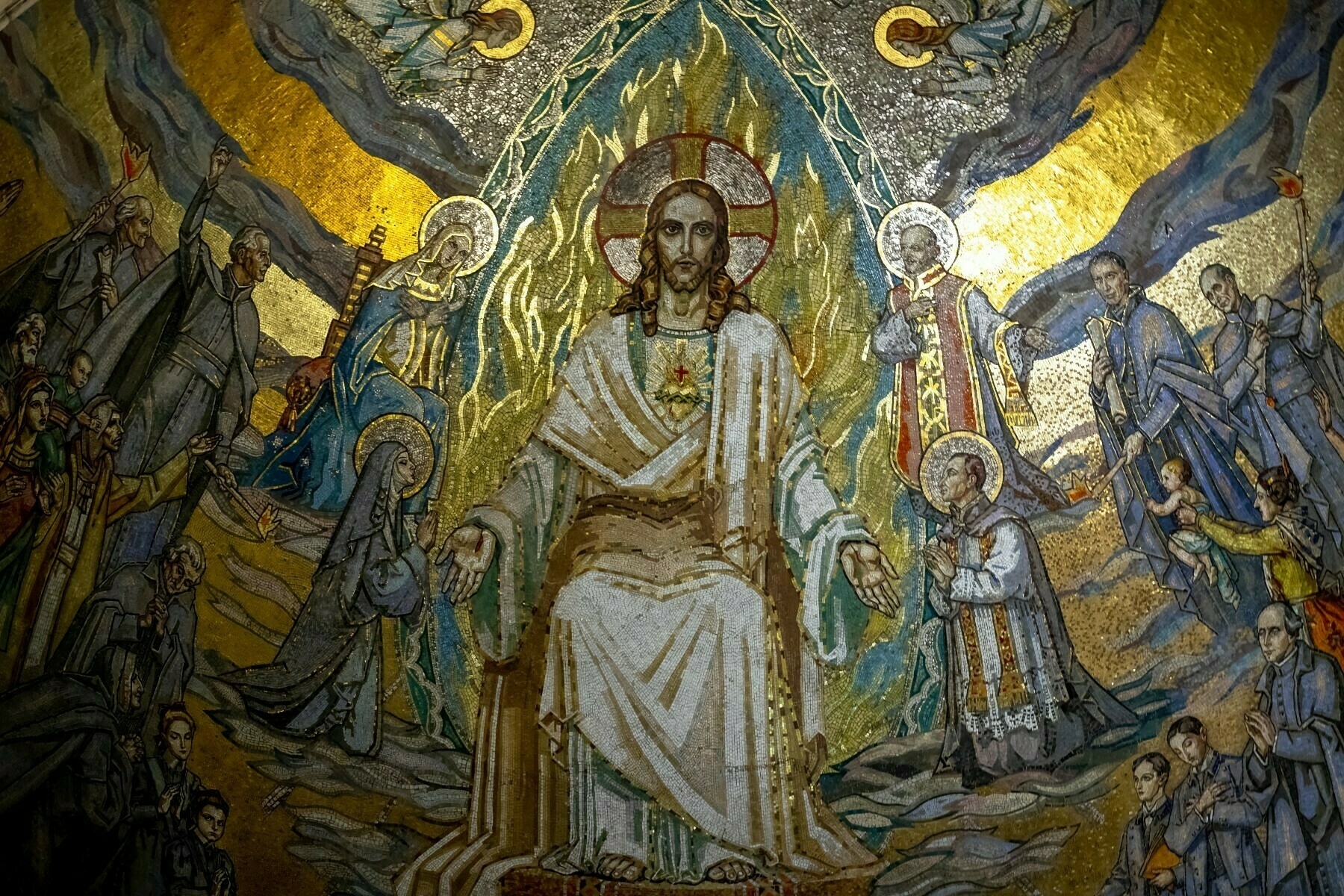
He directed Superman, and I loved everything about that movie
Yesterday, I found out that Richard Donner, the director of Superman (1978) and The Goonies has died. I don’t know much about him, except his connection to some the biggest blockbusters of my adolescent years.
Superman was no doubt the first real superhero movie I ever saw, and I Ioved everything about it as a kid. The incredible John Williams score, the now-iconic Christopher Reeve performance, the–for the time–incredible special effects…there’s just so much to love.
I’m sure that film is the reason I love comic books and comic book movies to this day, and I have no doubt it contributed to my love of music (I used to go around humming the Superman tune all the time) and movies in general.
I’m not a massive Goonies fan but I have fond memories of watching it with best friends and imagining that we too might have it in us to invent gadgets, follow clues, and live lives of adventure.
I’m really thankful for Donner’s lasting contribution to some of my favorite and most enduring memories…they still have an impact.

Thankfully, my country is not my church
As those of us in the U.S. prepare for 4th of July festivities, I want to recognize the main things I am grateful for as an American: Unprecedented freedom of religion, broad cultural support–at least in principle–for transcendent human rights, and some of the most beautiful landscapes in the world.
At the same time I recognize my country has often fallen tragically–even horrifically–short of its ideals, and in fact was founded on and remains committed to certain concepts, assumptions, and practices that are fundamentally incompatible with my faith.
It is important for me to rember that no matter how influenced the United States has been or will be by Christianity, my country is not my savior, my hope, or my church, and could never be.
I am thankful to be a “resident alien” in the USA. And I pray for grace to be a good citizen and serve my fellow Americans so they will know the goodness of God in Christ.
But my allegiance–and the foundational focus of my energy and attention–can only ever be to Christ alone and his people in every nation.
 NRH
NRH